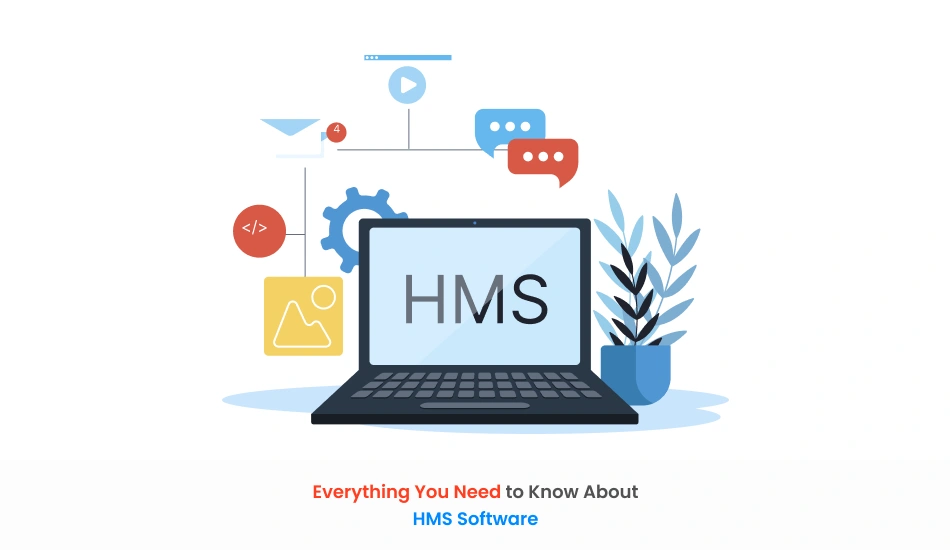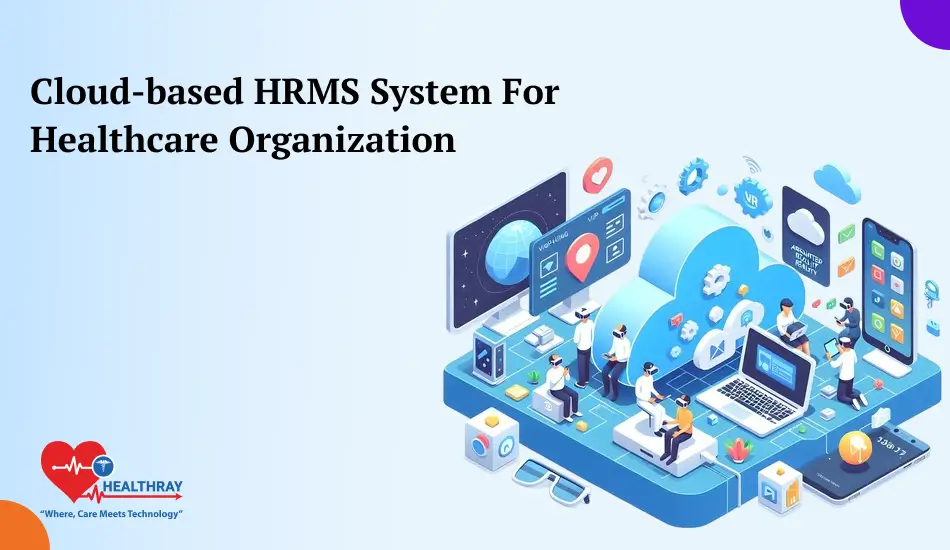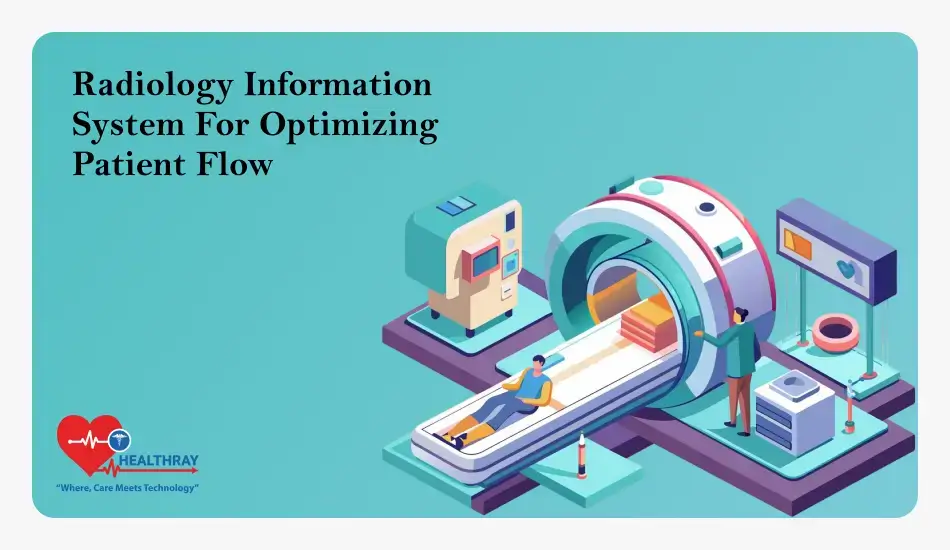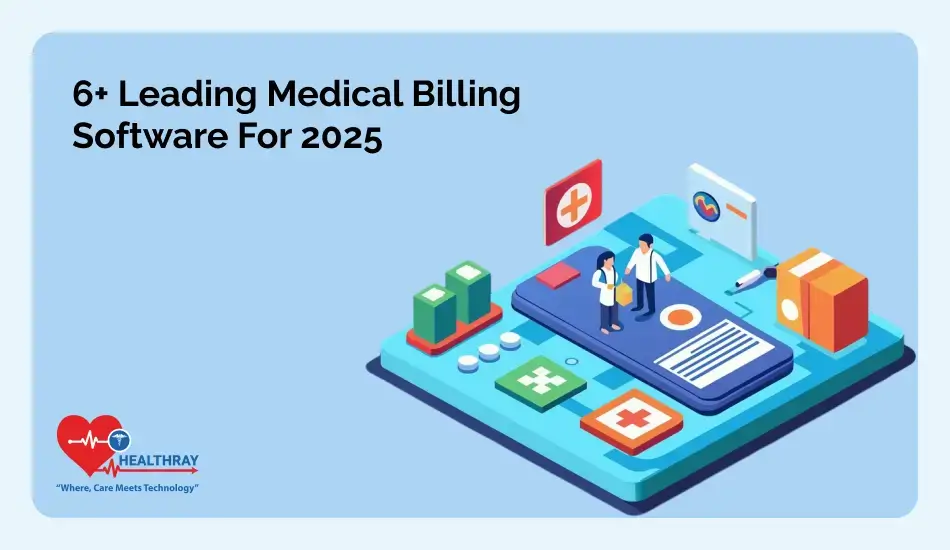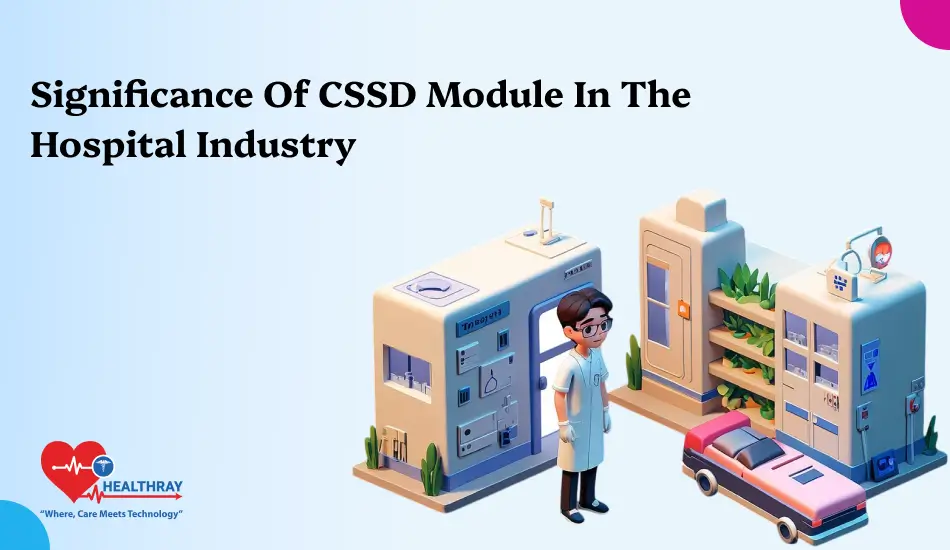Hospitals and clinics manage a huge volume of data and complex operations every day. It involves managing patient records, scheduling appointments, making bills, planning staff schedules, and inventory handling. Hospital administrators have to handle numerous responsibilities. So, hospitals use HMS software to get everything going smoothly.
But what is HMS software, and why do hospitals need it?
HMS refers to an integrated system intended for proficient management of day-to-day activities in any hospital or healthcare organization. It supports the flow of all activities related to the workflow of a hospital-from managing patient records to smooth billing and scheduling appointments. With the Hospital Management Software, managing the hospitals can be more efficient by putting things in order for their administrators, IT managers, doctors, and hospital owners.
This blog breaks down everything you have to learn about HMS software, its features, benefits, challenges, and how to make the right solution for your hospital.
Key Features of HMS Software
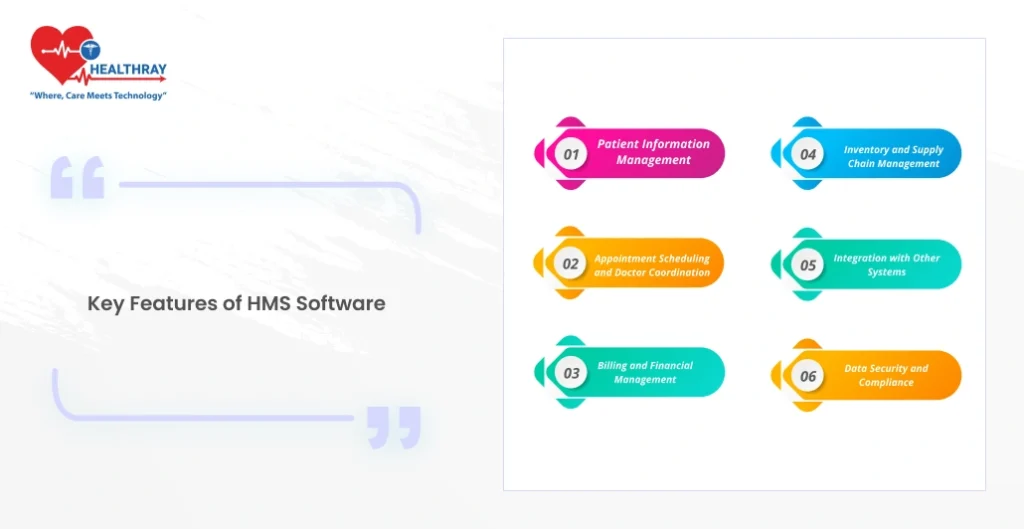
Patient Information Management
Any Hospital Management System is incomplete without the capability of managing patient information. The digital storage of all patient information such as medical history, test results, prescriptions, and billing details ensures easy access to all information without the digging through piles of paper. From routine check-up to emergency services, real-time data at hand means better and safer care for patients.
Appointment Scheduling and Doctor Coordination
Another core function is scheduling. HMS software will enable a hospital to schedule doctor schedules, patient appointments, and resource allocation under one system. This ensures there are no scheduling conflicts, thereby ensuring every patient receives appropriate care on time. Automated reminders and easy rescheduling reduce the no-show cases and improve the satisfaction level of patients.
Billing and Financial Management
For hospitals, the process of billing is very complicated and involves much struggle, especially when it involves insurance claims and many forms of payment. HMS makes this easier by streamlining the process through automated billing, managing payments, and tracking patient balances. It is also able to provide very detailed financial reports to hospital administrators for budgeting and cash flow monitoring.
Inventory and Supply Chain Management
Hospitals require inventory management for medications, medical supplies, and equipment. HMS software allows inventory management with automatic reordering when the stock is low, so that a hospital never runs out of its critical items, especially in emergency situations.
Integration with Other Systems
The HMS software may be integrated with other systems of the hospital, like laboratories, pharmacies, and radiology departments. This allows the data to flow between the departments without much trouble. For instance, lab test results can automatically get added to the patient’s record, or a doctor’s prescription may be directly sent to the pharmacy of the hospital.
Data Security and Compliance
Information regarding patients is confidential and should be well protected. HMS software includes such security features as encryption, user authentication, and role-based access control. Such features ensure that only authorized personnel access patient records and that, therefore, all hospitals conform to regulations like HIPAA in the US.
Benefits of Implementing HMS Software
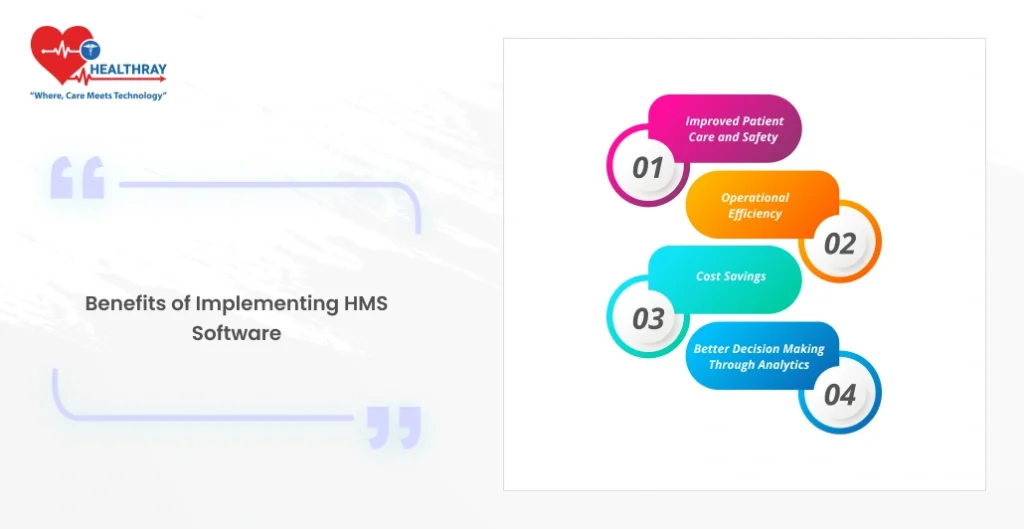
Improvement in Patient Care and Safety
HMS software enhances patient care wherein it helps the physician to get direct access to up-to-date, accurate information on the patient, reducing the possibility of errors in treatment and ensuring that physicians possess all the data they require to make informed decisions.
Operational Efficiency
It automates basic functions, including scheduling of appointments, billing, and management of the inventory at hospitals. This helps decrease the workload for employees in hospitals as they then focus less on administrative procedures and more on taking care of patients.
Cost Savings
HMS systems also save the operation cost since it eliminates human error, making the whole system more efficient. Automated billing increases the speed at which payments are received and reduces rejected insurance claims. Better inventory management also reduces waste since supplies are ordered only when necessary.
Better Decision Making Through Analytics
Detailed reports and analytics are also given by HMS software. Tracing patient flow, staff efficiency, and financial data is also possible with this software. In all these respects, administrators might make the right decisions in running their hospitals.
HMS Software Problems
Cost of the Initial Deployment
Implementation of HMS software is an investment that has a huge upfront cost. A hospital has to buy the software, install specific hardware, and train the personnel. These steps’ short-term costs are repaid in the long term through efficiency in running the business and higher quality care of the patients.
Training and Adoption
Introducing new technology in the hospitals will be quite challenging because hospitals will be used to the manual approaches. The system needs proper training for employees on how the system can function efficiently. Staff members will always express resistance towards these changes because employees have always been accustomed to things being done in a specific way in the past
Customization and Integration
Different hospitals have always had different needs, and there is a good chance that some specific workflows may need to be fitted with customized HMS. Also, integrating the new system with existing software, such as lab or pharmacy management systems, may be complicated and time-consuming.
Data Migration and Security
Upon integrating the Hospital software, one would have to migrate the existing records of patients onto the new systems. Data migration needs to be appropriately planned in order to avoid losses of data. There are security-related issues that one would face, for the patient information is very confidential and needs protection against breaches.
Selection of the Correct HMS Software for Your Hospital
Understand Your Needs
Each hospital is unique, and so initial selection of HMS software requires assessing the particular needs of a given hospital. For example, a large hospital with different departments will need a more comprehensive system compared to a small clinic. Note down the features required by the size of your hospital, budget, and other specific requirements in writing.
Vendor Comparison
Once you know what you need, compare HMS vendors based on features, pricing, and support. Some key questions to ask include:
How secure is the software?
Does it integrate with existing systems?
What level of support is provided-24/7, on-site, remote?
Are there additional costs for customization or maintenance?
Customization and Scalability
Look for a system that can be customized to suit the workflows of your hospital. Moreover, it should be such a system that your hospital can grow with – adding more features, users, or departments, for instance.
Support and Maintenance
Choose a vendor that provides good support and maintenance. The frequency of the latter, along with periodic updates of the software, is of great importance to keep the system functioning properly and eradicate the problems that would otherwise set in later.
Cost Considerations
Upfront Costs vs. Long-Term Savings
Although the cost of purchasing and implementing the HMS software is very high in the upfront stage, it saves more frequently in the long run. Some other benefits are savings in multiple operational costs over time because of automation, fewer errors, and efficiency.
Subscription Models
Most of the softwares in HMS are either of one-time purchase kind or subscription kinds. The later can spread the expense over time; in addition to this, one would often be covered by having updates and supports. However, it tends to end being expensive in the long run.
Hidden costs
Watch out for the hidden costs of training, customization, and hardware upgrades. These will serve to raise the total cost of the HMS implementation, so be sure to budget them in when considering the cost of the HMS.
HMS Software Future Trends
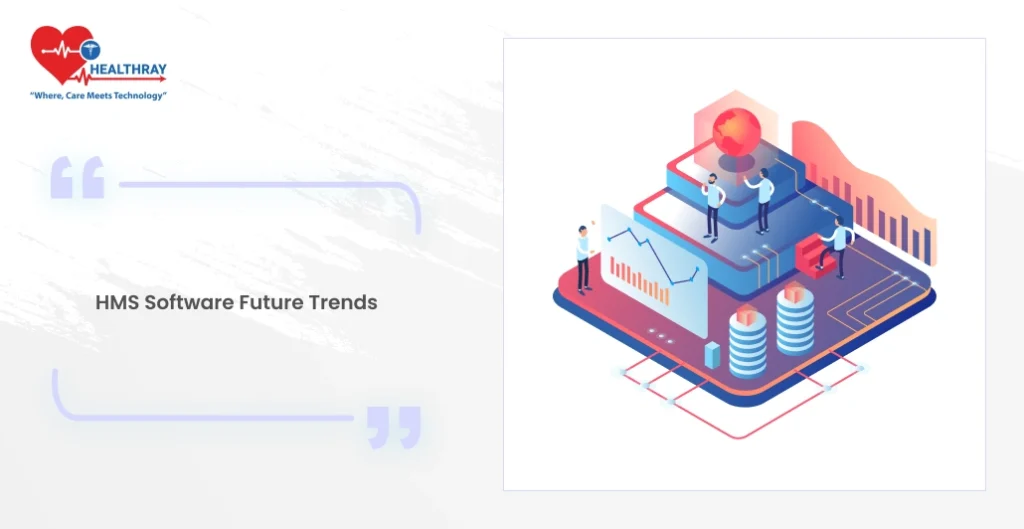
Technology is constantly changing and HMS software is no exception. Here are a few upcoming and current trends:
AI and Machine Learning: These are those technologies which are being integrated with HMS systems so that predictive analytics could be performed and decisions become better.
Telemedicine Integration: As a post-pandemic reality, telemedicine is becoming the new normal, and this makes every hospital go for remote consultation and follow-ups.
Blockchain for Security: This technology of blockchain can be used in the security part to ensure tamper-proof in nature-the patient’s records.
The right HMS software could be a game-changer for those hospitals that want to streamline their operations and improve care delivery. The management of patient data, billing, and inventory management is just a section of how HMS software enhances the efficiency of a hospital. The money and time saved are focused on delivering great care for the patients with fewer errors. ciently, saving time, money, and reducing errors. With the right HMS solution in place, hospitals can focus on what matters most—providing excellent care to their patients.
